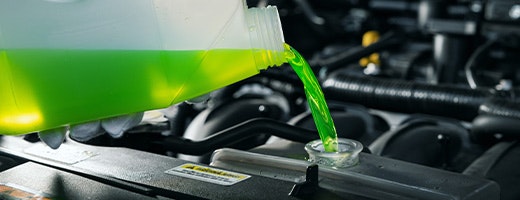
Coolant Tips and Cooling System Care
Discover expert radiator and cooling system maintenance at Auto Stop Gold Coast in Arundel. Diagnostics, repairs, and a Nationwide Guarantee ensure your peace of mind.
Read moreDiscover Premier Electric Vehicle & Hybrid Servicing at Auto Stop Gold Coast in Arundel
In the ever-evolving landscape of automotive technology, Electric Vehicles (EVs) are gaining unprecedented popularity for their efficiency, sustainability, and innovation. As these advanced vehicles become a more common sight on the roads, the demand for specialised servicing and maintenance is on the rise. At Auto Stop Gold Coast, we are at the forefront of offering professional Electric Vehicle servicing that aligns with the unique requirements of these modern vehicles.
Electric Vehicles & Hybrid's, with their intricate designs and cutting-edge technology, require a specialised approach to servicing. At Auto Stop Gold Coast, our team of certified technicians is equipped with the latest tools and knowledge to conduct thorough inspections and maintenance on a variety of EV models. Key systems that necessitate regular checks and servicing include:
Our comprehensive servicing ensures that every aspect of your EV operates at peak performance, enhancing its efficiency, safety, and longevity.
Electric vehicles (EVs) and Hybrid's are praised for their lower maintenance requirements compared to internal combustion engine (ICE) vehicles. However, they still have mechanical systems that need regular inspection, servicing, and, occasionally, repairs to ensure their longevity and optimal performance. Here are five mechanical systems in an electric vehicle that require such attention:
1. Braking System: Whilst EVs utilise regenerative braking systems to help recharge the battery during braking, they still have traditional friction brakes (discs and pads) that wear out over time. Regular inspections of the brake pads, discs, and fluids are crucial to ensure safety and performance.
2. Suspension and Steering Systems: The suspension system absorbs shocks and vibrations, providing a smooth ride, whilst the steering system allows the driver to guide the vehicle. Components such as shock absorbers, struts, ball joints, and tie rod ends can wear out or become damaged. Regular checks can identify issues early, preventing more significant problems down the road.
3. Cooling System: Electric vehicles have cooling systems designed to manage the temperature of the battery pack, electric motor(s), and other electronic components. This system can include radiators, coolant, pumps, and hoses that need to be inspected and serviced to ensure they function correctly, preventing overheating and ensuring the longevity of the components they cool.
4. Tyres: Tyres are critical for safety, performance, and efficiency. Regular inspection of tyre pressure, tread depth, and overall condition is essential, as is rotating the tyres to ensure even wear. The heavier weight of many EVs, due to their battery packs, can lead to quicker tyre wear, making regular inspections even more crucial.
5. Drive System: The electric drive system, including the electric motor(s) and associated gearing, can require servicing. This might involve checking for any abnormal noises, ensuring connections are secure, and verifying that software updates for the motor control systems are applied. Whilst generally low-maintenance, over time, bearings might need to be inspected or replaced, and gearboxes (if present) might require oil changes, albeit at longer intervals than traditional transmissions.
By regularly servicing these mechanical systems, electric vehicle owners can ensure their vehicles remain safe, efficient, and enjoyable to drive for years to come.
At Auto Stop Gold Coast in Arundel, we are committed to providing top-tier Electric Vehicle servicing and inspections. Our blend of technical expertise, advanced diagnostics, and a customer-centric approach ensures that your EV receives the care it deserves. Whether it's routine maintenance, a comprehensive service, or a pre-purchase inspection, our team is ready to support the longevity and performance of your Electric Vehicle. Drive into the future with confidence with Auto Stop Gold Coast.

Discover expert radiator and cooling system maintenance at Auto Stop Gold Coast in Arundel. Diagnostics, repairs, and a Nationwide Guarantee ensure your peace of mind.
Read more
Choose our Pre-Purchase Electric Vehicle Inspections with thorough Battery Analysis to make informed decisions and avoid unforeseen expenses. Auto Stop Gold Coast fully certified to Service & Repair your HEV, PHEV, BEV and all battery powered vehicles.
Read more